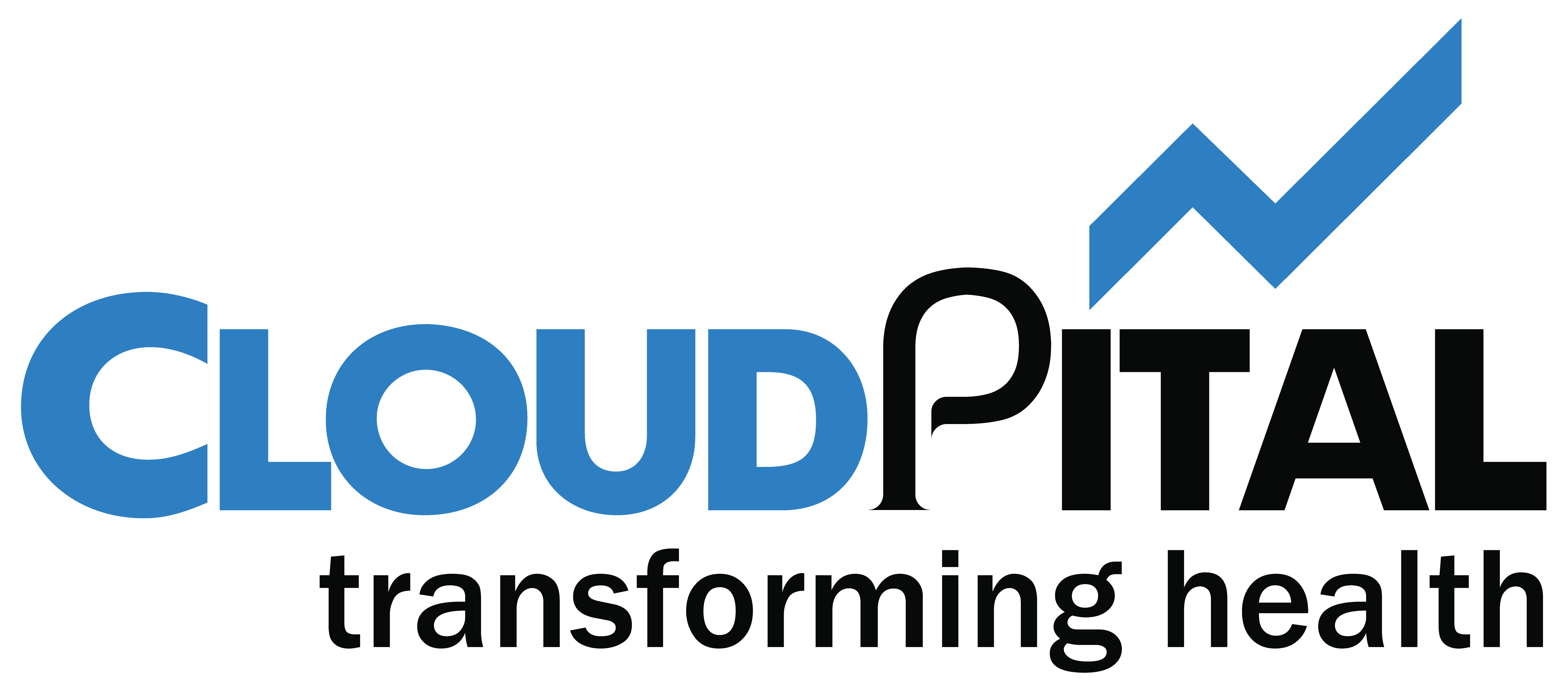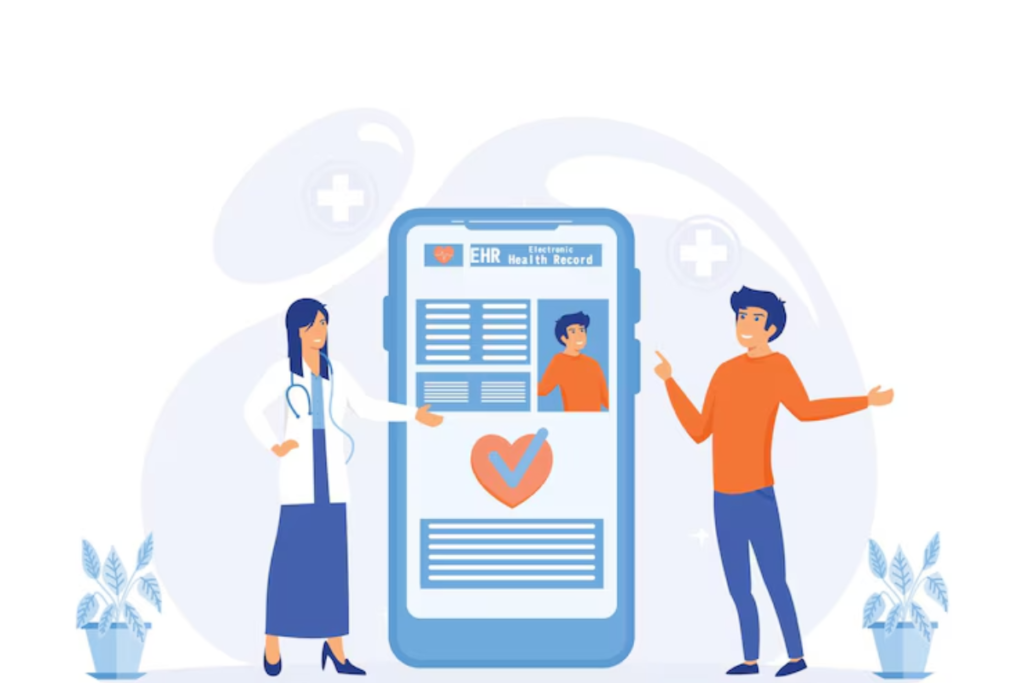Cloudpital # 1 is one of the top Hospital Software in Saudi Arabia sectors that has been evolving at a rapid pace lately in the wake of the government’s Vision 2030 initiative aimed at enhancing the quality of life among citizens. One important factor in this evolving process is the ever-increasing implementation of hospital software into healthcare delivery systems within the kingdom. Hospital software not only automates and streamlines many medical processes but also plays an important role in enhancing patient care, operational efficiency, and data management.
Cloudpital # 1 Hospital Software in Saudi Arabia

Streamlined Operations and Improved Efficiency
One of the major advantages of Hospital Software in Saudi Arabia is that it converges most activities in an efficient way. Not so long ago, operations in hospitals generally involved a lot of human activities that were mainly manual, prone to errors, time-consuming, and inefficient. Today, with the use of developed hospital software, these activities are now very automated, allowing healthcare providers to attend to patients rather than engaging in bureaucratic work.
For instance, HMS can handle and automate the following activities: appointment scheduling, patient admission, billing, and inventory management. The systems also enable reduction in turnaround time for processing patient data, managing medical records, and generation of reports for third party. In this manner, the use of software helps hospitals increase the number of patients being attended to with minimal compromise on quality, hence an effective delivery system.
Enhanced Patient Care and Safety
Hospital software directly impacts the quality of care given and safety at hospitals. The pursuit of means to improve patient outcome in the health sector has, in recent times changed much of what constitutes the health providers in Saudi Arabia. EHRs allow medical practitioners to access, in real time live data regarding a patient’s medical history to make diagnoses and advance treatment plans to be more accurate.
In addition, clinical decision support systems that are linked to hospital software can inform physicians of evidence-based recommendations to alert them about such risks as interactions of drugs, allergies, and dosing errors. All these reduce the propensity for medical errors of the type that may be fatal.
Hospital software is also increasingly being used to enhance the communication and collaboration between the medical teams, ensuring that the patient information is shared in a safe and efficient manner from a team of doctors involved in a critical case or even specialists in other hospitals.
Easier Access to Health Information
Data forms the base of any modern healthcare system. Now, since the emergence of big data in the healthcare sector, hospitals are able to collect and store and analyze humongous data with much greater efficacy. This capability has proven to be invaluable for healthcare providers in Saudi Arabia who strive to deliver care based on individual needs and data.
Hospital software is something of a digitalization of healthcare records; it allows such records to be accessed easily by the healthcare providers at any time and at any place. Such information is most important during emergencies, where patient history may be a matter of life and death.
Moreover, software systems could track the outcomes of patients and generate trends to improve them. For example, the data analytics tools inserted in hospital software enable hospitals to find a pattern when it comes to the care for patients, such as which treatment is most effective for a condition or which specific aspects of care need to be improved. This enables health practitioners in Saudi Arabia to make more informed decisions, hence a better outcome for the patient.
Cost Saving and Resource Optimization
The large-scale healthcare system like Saudi Arabia needs to manage its resources for optimization. Hospital Software in Saudi Arabia can reduce the cost of health care systems in a number of ways. They include automation of administrative activities, such as billing, claims management, and also on inventory control. These automations rule out administrative overhead while at the same time minimizing the chances of committing errors that would result in losses.
The use of hospital software would facilitate resource utilization management better through live input into the happenings in a hospital. For example, bed management systems can inform one of the number of beds available within a hospital for their optimal usage. In return, this helps in reducing patient waiting time while ensuring availability of critical resources at the desired point in time.

Telemedicine and Remote Patient Monitoring
Telemedicine is one of the regions for which a lot of steps are being taken forward within PMS in Saudi Arabia. This telemedicine automatically came as an alternative solution to meet the growing requirement of health care services, especially within the remote and underserved regions, without making them appear personally before the doctors who provide the care. Hospital software makes the service of telemedicine possible for doctors because it allows them to view their patients through video callings and access their medical history, among other things.
Another point is that with accelerated use of remote patient monitoring tools in the Saudi Arabian health care system, these allow one health provider to monitor the status of patients 24/7 and in real-time, just from the comfort of the hospital bed, since the monitoring of patient devices could include monitoring heart rate, blood pressure, glucose levels, among others, and get transmitted to health care professionals via the hospital software. It helps in early detection of health problems and treatment, which ultimately determines better patient outcomes.
Adherence to Standards of Regulation
In Saudi Arabia, regulatory standards to govern the healthcare sector in terms of the safety and well-being of patients are very stringent. Hospital software has permitted health care providers to better comply with such standards relating to documentation and reporting requirements of the law. A particular set standard by the Saudi Central Board for Accreditation of Healthcare Institutions (CBAHI) and other regulatory authorities covers patient safety, maintaining medical records, and data privacy.
Hospital software systems can assure all information relative to the medical history of the patients will be appropriately documented and safely filed with minimum cases of non-compliance. Hospital software allows healthcare providers to efficiently produce all the reports required, thus always staying in line with what is expected of them by the regulatory system.
Integration with National Health Initiatives
The Saudi government focuses on healthcare infrastructure modernization and promoting digital health solutions in its Vision 2030. This creates a huge impact on how the software of hospitals can contribute towards these projects by providing healthcare processes with digitizing tools, thus improving quality service delivery.
For instance, its hospital information software can be integrated with National health databases such as Saudi Health Information Exchange (SeHE) so that all health care establishments use the common platform of patient information sharing. This will make coordination of care even better especially for the patients who have to pass through several institutions for their treatment.
Finally, hospital information systems can help further the process of public health initiatives by providing data for epidemiological research, surveillance of disease patterns, and development of health policy. Such applications are timely in Saudi Arabia given its focus on effective healthcare resource management.
Enabling and Involving the Patients
Dental Software in Saudi Arabia enables patients to take up an active role in their care, and most of the hospital software systems have provided the patient portal whereby individuals can access their medical history, check their test results, schedule their appointment, and communicate with their healthcare provider from their homes.
This transparency and access promotes trust between patients and the health care providers, leading to better patient engagement. Second, many hospital software systems are equipped with educational resources that allow the patient to learn more regarding his condition, treatment, and preventive measures.
The integration of hospital software into the Saudi Arabian health system is changing all forms of medical service delivery. Its adoption makes all the organizational operations streamlined, better patient care, improves accessibility to data, enhances telemedicine capabilities, and enables healthcare providers to deliver quality care to their patients while optimizing resource allocation and keeping costs down.
Hospital software will increasingly play a vital role as Saudi Arabia continues down its path of digital transformation through Vision 2030. Such technologies would find the country moving in the right direction to build an efficient, patient-centric, and data-driven system for the kingdom.
Click to Start Whatsapp Chatbot with Sales
Mobile: +966502737333
Email: sales@cloudpital.com
You can explore our other blogs
Hospital Software in Saudi Arabia, EMR Systems, PMS
10-22-2024




